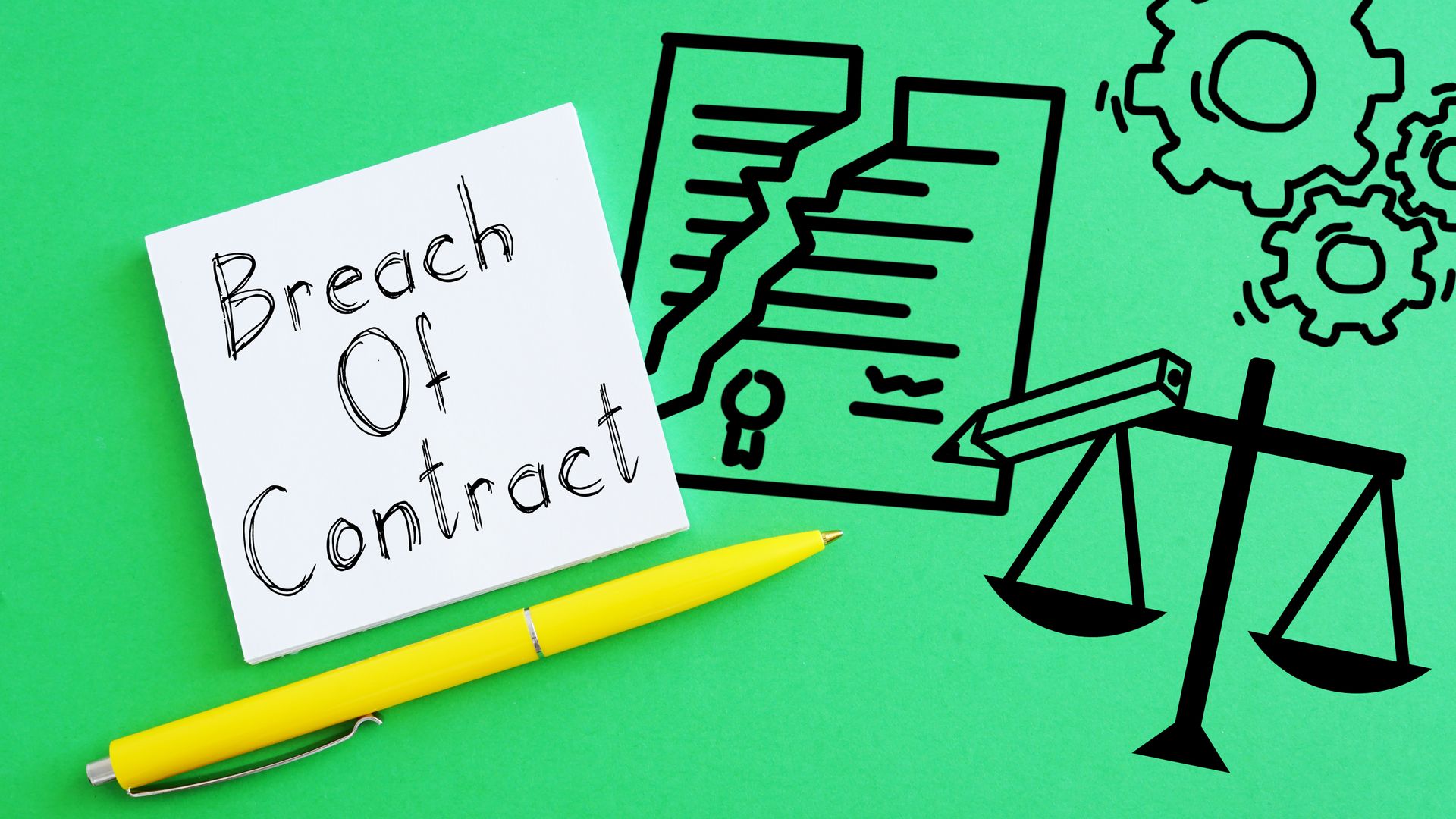Blog

There are virtually a limitless number of scenarios in which a contract could be breached, with specifics largely depending on the type of contract, who it’s between, the industry in which the parties operate and the way in which one or more parties failed to uphold the agreed-upon terms. Although there are a diverse variety of specific scenarios, most breaches can be categorized into one of four broad buckets.
These categories include:
- Material breach
- Minor breach/partial breach
- Anticipatory breach
- Actual breach
The nature of each of these breaches, as well the remedies, will vary depending on the unique circumstances, but these four categories provide a framework in which breaches can be more easily addressed in a legal context.
Material Breach
These breaches constitute a serious violation of a contract that significantly impacts the intended outcome or the benefit of the contract to one of the parties. Action or inaction that results in a material breach typically gives the non-breaching party the right to terminate the contract and seek compensation for resulting losses or expenses.
Example of a Material Breach
If you hire an HVAC technician to replace your air conditioner with a specific new system, and they install a different, lower-quality model, it would qualify as a material breach. The system may not last as long as the one you initially chose, be less efficient and provide less effective temperature control – all of which significantly degrades the benefit of having the old system replaced.
In most cases, HVAC companies have some kind of guarantee or care enough about their reputation to rectify the problem without having to pursue litigation. However, if they refused to make good and fulfill the contract according to the original terms, you may have cause to pursue damages for the material breach.
Minor Breach
This would be a breach of some aspect of the contract that wasn’t central to the primary intent of the contract. The primary purpose of the contract is still fulfilled, but the outcome or benefit was less than it could have been had the breaching party fulfilled their end of the agreement in full. In these situations, the non-breaching party can seek damages, but the contract would remain in effect.
Example of a Minor Breach
If a publisher contracts a printer to print 1,000 copies of a book on a specific type of high-quality paper or with a unique type of cover or binding, and the printer ends up using a lower quality of paper on the 1,000 books, the publisher could potentially seek damages for a minor breach.
The primary purpose of the contract – the printing of 1,000 books – was completed, just not exactly to the agreed-upon quality standards.
Anticipatory Breach
An anticipatory breach, also known as anticipatory repudiation, is a scenario in which one party determines the other party will not be able to meet their contractual obligations in the future. They may be able to seek damages as soon as they realize this fact rather than waiting for the material breach or minor breach to occur.
Example of an Anticipatory Breach
Venues typically book acts months in advance. By their nature, venues have a limited amount of time to attract customers and generate revenue. They lose money when they sit empty or if they spend money on marketing for a show that doesn’t happen.
If a musician cancels a leg of their tour, the affected venues would, in theory, have cause to seek damages for an anticipatory breach. They don’t have to wait for the date the show was scheduled to pass before pursuing damages.
In practice, touring contracts and agreements with venues typically have clauses to shield the musician from liability for a variety of cancellation scenarios (like illness or injury of the band, unforeseen events, etc.) These agreements often have requirements like notice periods, a list of valid reasons and financial penalties for violations.
Actual Breach
An actual breach is one in which one party fails to meet their obligation by the agreed-upon date.
Example of an Actual Breach
If a catering company hired to provide food for a wedding on a specific date fails to show up or arrives at the wedding with the wrong menu items and doesn’t have time to replace them with the right items, it would constitute an actual breach.
What’s the Difference Between an Actual Breach and a Material Breach?
An actual breach has to do with timing. One party doesn’t do the agreed-upon task by the date or time specified in the contract. A material breach has to do with the impact the breach has on the value of the contract or the quality of the outcome.
Was Someone Injured by Your Business in Atlanta?
Not all lawsuits and claims against businesses have to do with contractual breaches. Many Atlanta businesses face litigation due to injuries allegedly caused by an unsafe premises, dangerous products or the actions of employees. Business liability claims can be just as harmful, or potentially more harmful, than breach of contract litigation – and, in many cases, are harder to defend against.
Contract disputes can be straightforward with clear facts that aren’t disputed by either party. One business failed to deliver the agreed-upon service by the date stipulated in the contract. The facts surrounding injury claims can be much murkier, with unanswered questions pertaining to who was at fault, the source of injuries, the degree of culpability and whether the business knew about or should have known about the existence of the circumstances that led to the injury.
If someone is seeking compensation from your business for injuries they allegedly sustained due to the actions of you or your employees, business liability defense attorney Cameron Hawkins is ready to fight for you. Call us at 678-921-4225 for a consultation.











